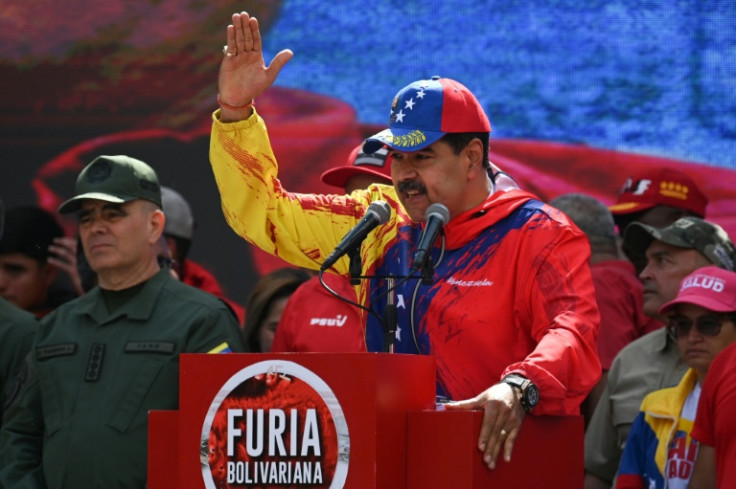
Venezuelans working in different countries are facing trouble voting in the upcoming elections, as the law of their country does not allow them to vote if they are living in the host country illegally or seeking refugee or asylum status there.
Venezuelan law includes a provision for absentee voting, which lets citizens vote at embassies and consulates even if they're living outside the country.
Currently, President Nicolás Maduro, who took over as interim president after Hugo Chávez died in 2013, was trying to become president for a third time. However, many believe people who left the South African country during the complex crisis in Venezuela would vote against the current government, if given a chance, AP News reported.
A Venezuelan named Giovanny Tovar left his country five years ago to search for a job. After facing a lot of hardship and now, selling empanadas and tequeños in the streets of Peru's capital, Tovar wants to vote Maduro out of office.
However, like many other Venezuelan emigrants, he also won't be able to vote because of expensive and time-consuming government requirements that aren't mentioned in Venezuela's election laws.
"I really don't understand why they put so many obstacles in the way of us exercising our vote," he said. "I really would like to vote but not to give the vote to Maduro."
During Maduro's administration era, half of Venezuelans out of 7.7 million have left their country and they have registered to vote. However, government data reveals that only around 107,000 Venezuelans living abroad, including those who left before the crisis, are registered to vote outside of Venezuela.
According to a flyer outside the consulate in Colombia's capital, Bogota, a person living outside the country who wants to vote should have "permanent Residence Documents issued by the host country" with "validity of at least 3 years from the current date" and "must have been issued at least 1 year in advance."
Tovar has temporary but not permanent residency in Peru. Hence, he is not eligible to vote, as per the flyer.
Aside from this, there are more challenges for the voters as they would also require a Venezuelan passport to vote but getting it is expensive and takes a lot of time, ranging from weeks to several months.
Maria Cordova and her family moved to Mexico 18 years ago. In order to vote, she needs to renew her passport, which has been in process since last year. "It is a plan with ulterior motives because in order to apply, you need to pay," she said.
© 2025 Latin Times. All rights reserved. Do not reproduce without permission.







